Want razor-sharp vision and sparkling eyes? Find out the top 12 foods that will supercharge your eye health—creditable ones that are full of flavor and goodness! Your eyes run from sunrise to beach time, from the moment you rise up to when you spot your favorite beach area. They surely deserve some TLC, and what better way to give it to them than with delicious and power-packed food? Learn how these colorful and wholesome ingredients added to your diet can save your peepers, sharpen your sight, and even help you spot those crumbly little buggers that are always on the sly. Let’s explore the benefits of these eye-friendly bites and keep that vision in tip-top shape!
Carrots: A Vision-Boosting Powerhouse
Rich in Beta-Carotene
Of the foods to improve eye health, carrots are definitely a contender at the top of the list. Why? Because they’re overflowing with beta-carotene. This potent antioxidant is responsible for giving carrots their bright orange color. When you consume carrots, your body converts beta-carotene into vitamin A, a nutrient essential for eye health.
Vitamin A and Vision
Vitamin A is essential to good vision. This vitamin helps your eyes create a pigment called rhodopsin, which is actually responsible for helping you to see well in the dark. Therefore, carrots will do an excellent job at improving your vision in the dark and in avoiding night blindness. Generally, a steady intake of carrots as part of a healthy diet will have salubrious effects on both vision and overall health.
Protective Benefits
Besides improving vision, beta-carotene acts as an antioxidant in protecting the eyes from oxidation and thereby prevents age-related macular degeneration and other disorders of vision. Thus, the consumption of carrots becomes an enjoyable method to aid in warding off the threats that may cause potential damage to the eyes.
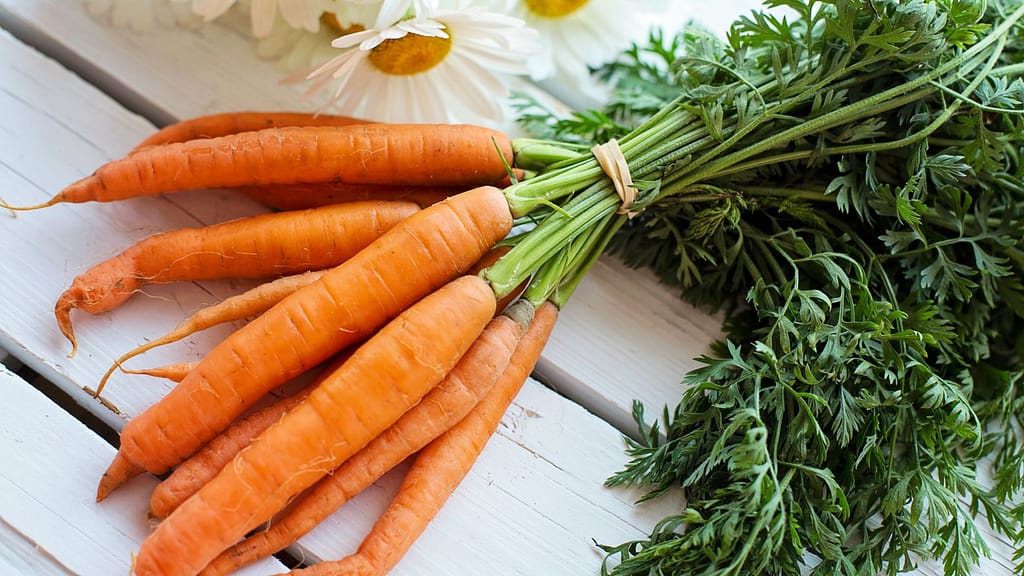
Spinach: A Green Powerhouse for Your Eyes
Packed with Lutein and Zeaxanthin
One of the ultimate powerhouse foods to boost your eye health would have to be spinach. In fact, it is the lutein and zeaxanthin that make this possible. These very powerful antioxidants are powerfully concentrated in spinach and work synergistically in vital functions in protecting the eyes. Much like natural sunglasses, they filter out potentially hazardous light and decrease damage to the eyes from ultraviolet rays.
How Lutein and Zeaxanthin Help
Lutein and zeaxanthin are claimed to be filters of blue light, which in the long term might prove toxic to your eyes. It aids the absorption and filtering of this light, thus protecting the retina and reducing age-related macular degeneration. Having a diet rich in spinach lowers the risk of developing AMD and cataracts.
Support for Long-Term Eye Health
Eating spinach regularly will help protect your eyes and sustain the health of vision over a long period. These antioxidants fight against eye oxidative stress and inflammation, which have a connection to several diseases or pathologies. Relishing spinach as part of a healthy diet becomes the delicious way to keep one’s vision sharp and to promote overall eye health.
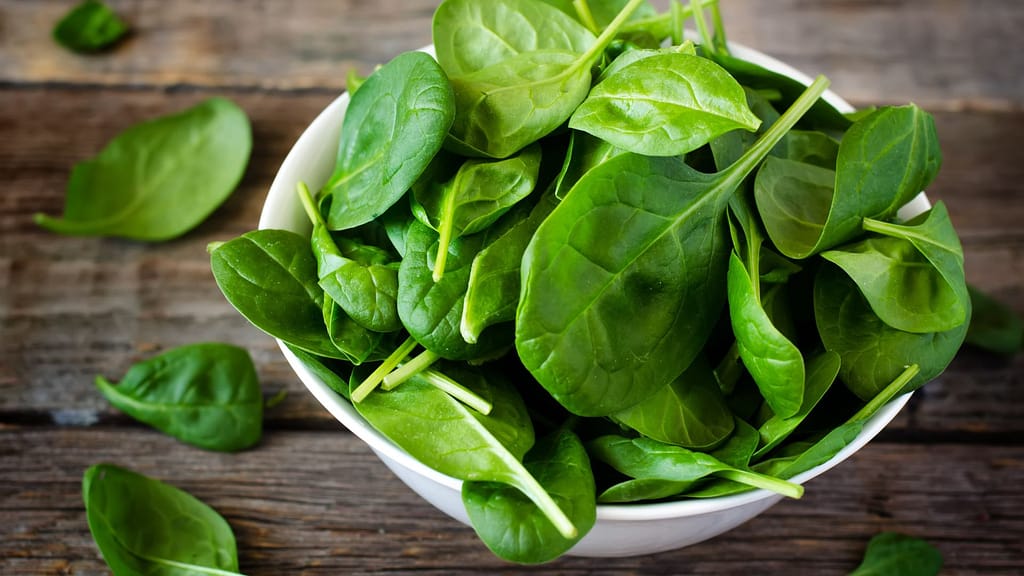
Sweet Potatoes: A Sweet Treat to Your Eyes
Rich in Beta-Carotene
Another great addition to the menu for enriching the health of your eyes would have to be the sweet potato. Like carrots, they are full of beta-carotene. This bright orange pigment is converted by the body into vitamin A. Vitamin A is crucial and needed for healthy vision and overall good eye health.
Benefits of Beta-Carotene
Beta-carotene promotes healthy eyes by acting in the creation of rhodopsin, a pigment that comes in handy in helping the eye see in low light. They are good to eat regularly so as to help safeguard against night blindness and vision loss; hence, making sweet potatoes an excellent food for taking care of your eyes.
Antioxidant Power:
Sweet potatoes are rich in antioxidants. Oxidative stress is one of the potential causes that damages eye cells and contributes to the progression of AMD and cataracts. They can be eaten in so many tasty ways that sweet potatoes are an excellent food to add to any diet in the interest of eye health and protection from these risks.
Include more sweet potatoes in your diet
Add some sweet potatoes to your meals and enjoy their eye-boosting benefits—baked, mashed, or added to soups, they’re versatile and full of nutrients. If you make this delicious sweet potato a regular part of your diet, then you’ll be enhancing your foods to boost eye health, while at the same time indulging in a nutritious, tasty treat.
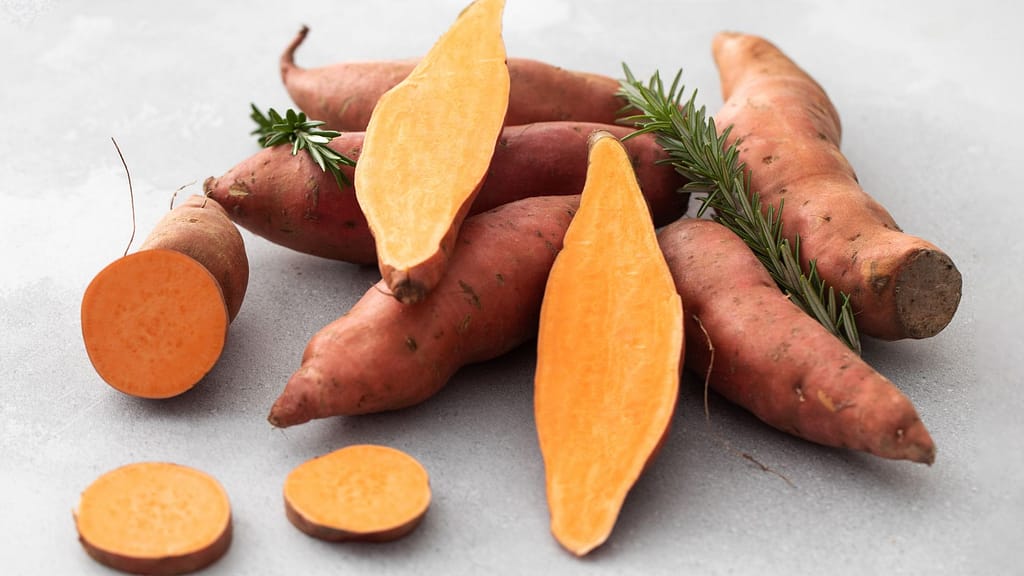
Blueberries: Small Berries, Huge Benefits for the Eyes
High in Antioxidants
Blueberries are among the richest foods in antioxidants to improve eyesight. Those small, brilliant purple berries have loads of antioxidants such as vitamin C, vitamin E, and a variety of flavonoids. Antioxidants play a very crucial role in flushing out free radicals responsible for oxidative stress that may lead to many eye troubles.
Protection Against Eye Diseases
The antioxidants of blueberries protect the eyes from both oxidative stress and inflammation. As such, it is capable of reducing the risk of very common age-related eye diseases, which include both macular degeneration and glaucoma. Blueberries are filled with phytonutrients that help in guarding against poor vision by reducing oxidative damage and supporting healthy vision.
Healthier Vision
They can help in maintaining good eye health over a long period when taken consistently. Their antioxidants help to maintain the integrity of the tissues of the eyes and preserve them from cellular damage. By having blueberries with your meal, you add flavor to your food and support your vision health by enhancing those foods that are good for the eyes.
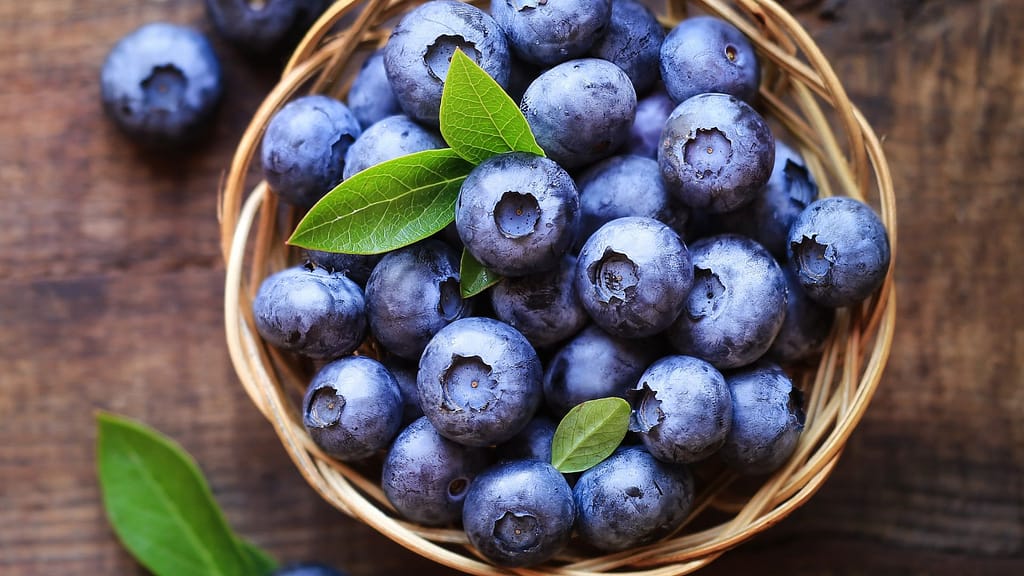
Salmon: An Appetizing Way to Boost Eye Health
Rich in Omega-3 Fatty Acids.
Salmon happens to be among the top foods to improve eye health. Why? Because it’s full of omega-3 fatty acids. The healthy fats are necessary in keeping retinal health and making sure that everything within the eyes works properly. These omega-3s do not just benefit vision; they are also crucial for good vision.
Benefits for Retinal Health
Omega-3 fatty acids in salmon support retinal health with structural and functional provisions in the cells of the retina. This keeps your vision sharp and clear. Salmon consumption can often help avoid dry eye syndrome, a common problem which could be bringing discomfort and problems with vision.
Reduces Inflammation
It is in this regard that omega-3s in salmon support retinal health and also help in bringing down inflammation. This becomes important because chronic inflammation can lead to a number of problems in the eyes. By eating salmon, you are fighting inflammation and saving your eyes from potential damage.

Eggs: Nutrient-Packed Power for Your Eyes
Powerhouse of nutrients, eggs contain both lutein and vitamin A.
Eggs are a good addition to foods that enhance eye health. They are rich in lutein and A vitamins. The nutrients are important in maintaining healthy vision. Lutein will help filter harmful blue light, while vitamin A is important in the overall functioning of the eye.
Benefits of Lutein
Lutein, found in egg yolks, is considered to have protective effects on eye stress and damages related to oxidation. In a nutshell, it protects the retina from light damage. Consumption of eggs will ensure intake of adequate lutein for the maintenance of long-term eye health.
Vitamin A for Vision Health
Vitamin A is highly essential for sharp night vision and overall health of the eyes. It helps maintain the outer layer of your eyes called the cornea and produces visual pigments to help in low light conditions. Including eggs in your diet, hence reduces the risk of night blindness and other disorders related to vision.
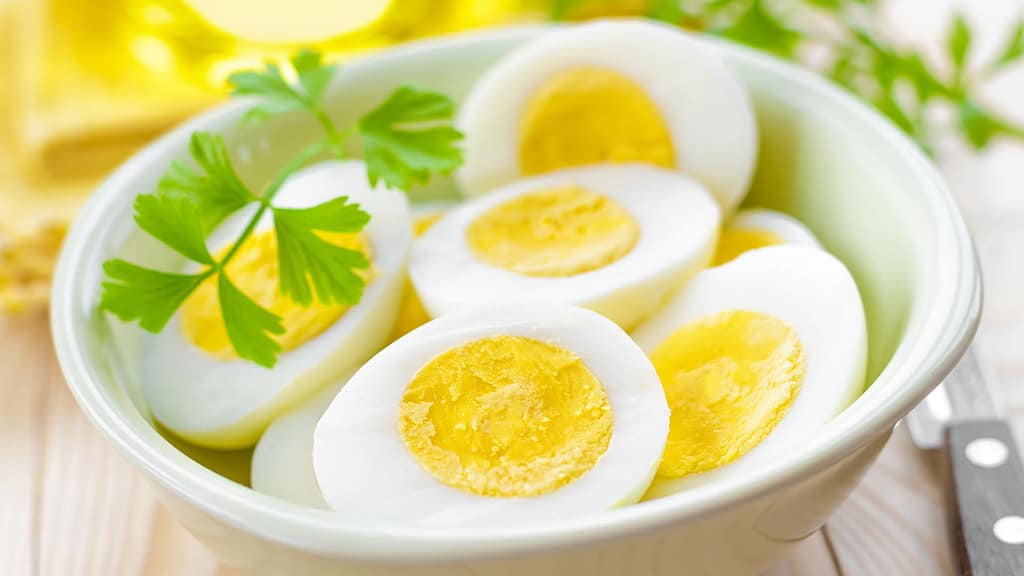
Almonds: A Wholesome Boost for Your Eye Health
Rich in Vitamin E
Almonds are the most powerful foods that help improve eye health. They are loaded with vitamin E, which is an essential antioxidant dedicated to protecting your eyes. It protects the cells of the eye from damage caused by free radicals, a naturally unstable molecule that causes damage to your cells.
Protection from Oxidative Stress
The antioxidant activity of vitamin E in almonds fights against oxidative stress. It can lead to tissue damage in the eyes, which causes a particular AMD. If consumed regularly, then the harmful effects can be prevented by the protective action of almonds.
Reducing AMD Risk
Vitamin E lowers the risk of AMD, a serious eye condition that affects central vision. It is through the consumption of almonds that one derives an intake rich in vitamin E, which is important in ensuring clear vision over the years.
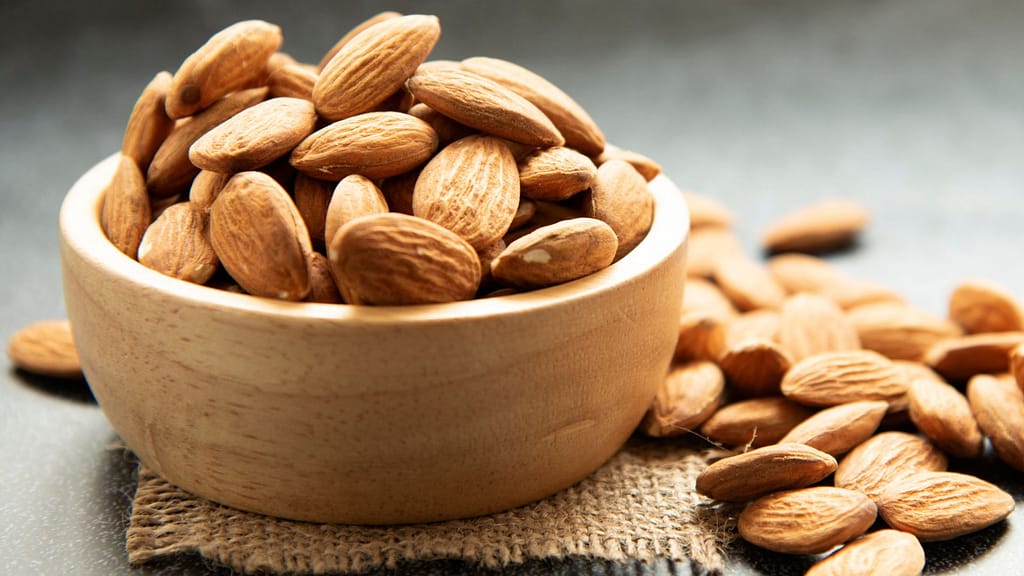
Oranges: Citrus Power to Your Eyes
Excellent Source of Vitamin C
Oranges are among the best foods for enhancing eye health. Rich in the potent antioxidant, vitamin C, they are essential for healthy eyes. It works just like an antioxidant in shielding the eyes from cell damage due to free radicals, associated with reducing many disorders related to vision.
Protection from Cataracts
Vitamin C also greatly contributes to the prevention of cataracts. Cataracts are among the common disorders of the eye whereby the natural crystalline lens becomes cloudy and vision becomes blurred. Oranges, when taken regularly, can supply the much-needed vitamin C for maintaining clear, healthy lenses and reduce the risk of developing cataracts.
Combating Age-Related Macular Degeneration (AMD)
Apart from this, vitamin C also promotes eye health by protecting against age-related macular degeneration. The central portion of the retina is affected because of AMD that leads to loss of vision. Oranges are packed with antioxidant-rich vitamins that absorb oxidant stress and lower AMD risk.
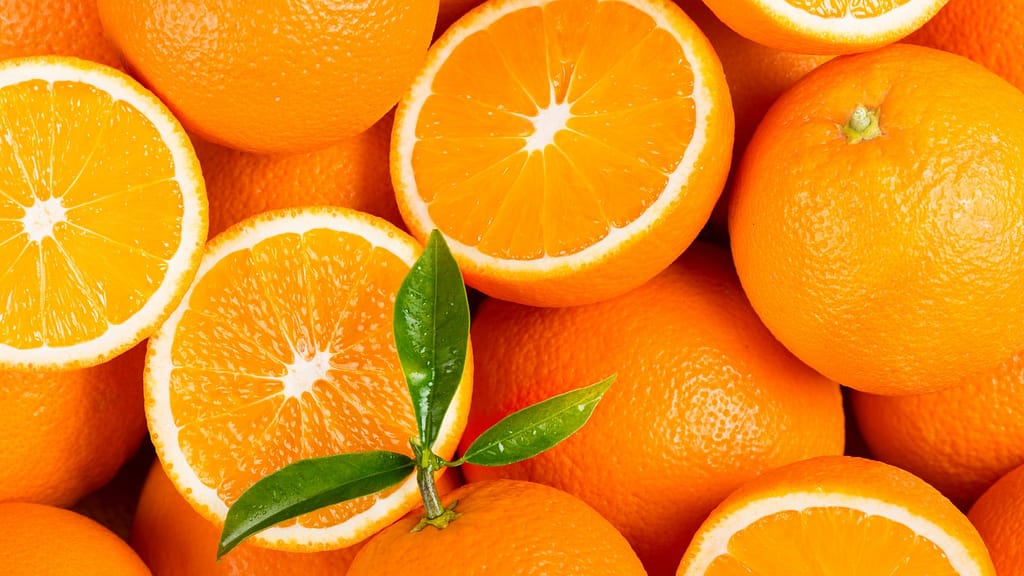
Corn: A Golden Grain for Eye Health
Rich in Lutein and Zeaxanthin
Of all the foods for improving vision, corn is rich in lutein and zeaxanthin. These nutrients function as antioxidants that can help support healthy vision. Lutein and zeaxanthin filter out part of the light entering the eye called blue light, which might damage the tissues therein.
Age-Related Vision Loss Prevention
Lutein and zeaxanthin work to safeguard the health of your eyes. They do this by reducing exposure to possibly harmful blue light, which prevents age-related loss of vision. Then, frequent intake of corn will help decrease the risk of macular degeneration and other similar diseases.
Better Visual Comfort
The antioxidants contained in corn not only protect the eyes but also increase visual comfort. These antioxidants reduce glare and improve clarity of vision. Corn will therefore make your eyes adapt from light to darkness or the reverse and enhance the ease of viewing.
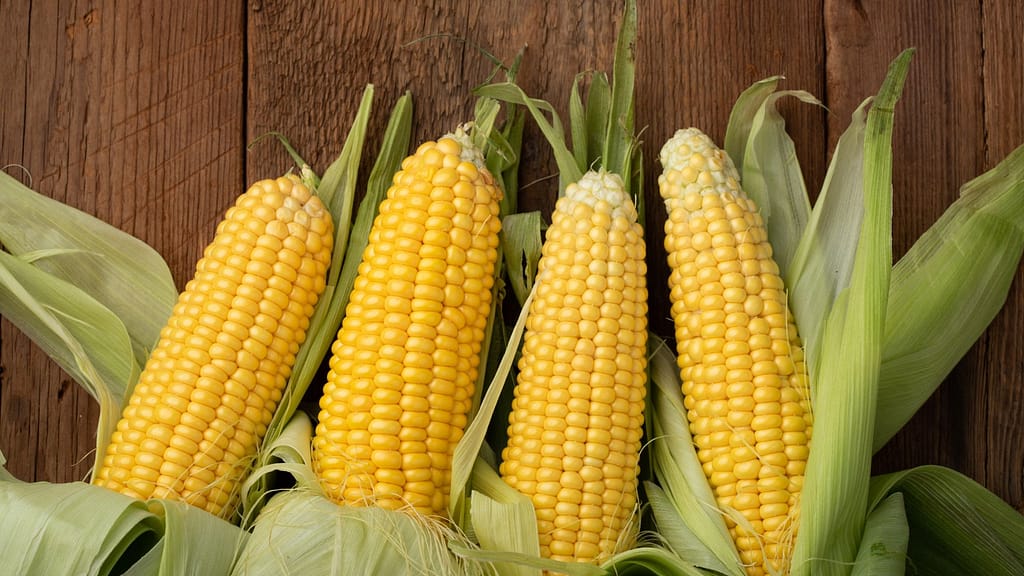
Kale: Leafy Green Power for Your Eyes
Packed with Antioxidants
Kale is a superstar among foods that help boost eye health. So, this green food is heaped with plenty of antioxidants, including lutein and zeaxanthin. These are two very important nutrients that, therefore, work well to ensure your eye health is good. They filter out hazardous light and offer protection from the damage caused by oxidation in the eyes.
Shielding Your Eyes from Damaging Light
Lutein and zeaxanthin, abundant in kale, play a critical role in protecting the eyes from maybe harmful light. They act as natural sunglasses, shielding the retina from strong light and decreasing the risk of complications such as macular degeneration. With kale, you get to give your vision the potential protection it needs from daily environmental stressors.
Lowering the Chances of Chronic Eye Conditions
Regular intake can help in decreasing the risk of chronic conditions that relate to the eye. The antioxidants contained in kale repress the action of oxidative stress, one of the significant factors increasing the possibility of developing an eye disease. When you add kale to your meals, you are supplying your eyes with the critical nutrients to aid in preventing conditions such as cataracts and age-related macular degeneration.
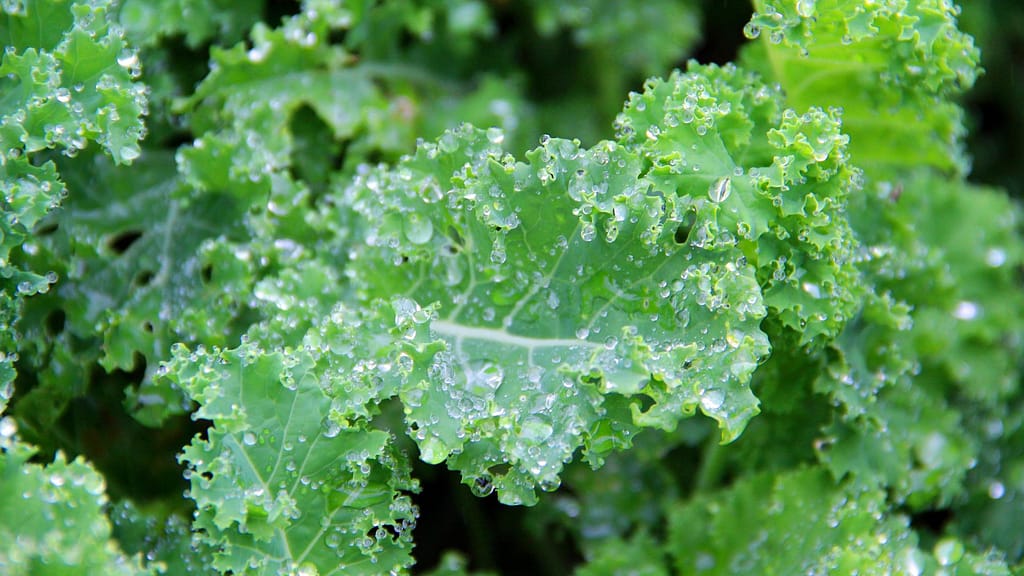
Red Bell Peppers: The Vitamin C Powerhouse for Eye Health
Loaded with Vitamin C
And now, to add some color into the list of foods for healthy eyes, red bell peppers are extremely rich in vitamin C, a nutrient absolutely necessary for healthy eyes. The action of vitamin C is that it performs as an antioxidant, one which not only counteracts but also inactivates oxidative stress directly contributing to protection against free radicals that do harm to the eye.
Major promotion of blood vessels health
The vitamin C present in red bell peppers helps in maintaining healthy blood vessels that supply the eyes. Healthy blood vessels ensure blood flows freely and also that the delivery of nutrients into the retina happens. This makes sure there is a general health for the eye, thus reducing chances of eye diseases.
Reduces the Risk of Cataracts
In that regard, red bell peppers can be part of the diet on a regular basis to help lower the risk. Vitamin C prevents cataract formation by reducing oxidative damage to the lens. That way, red bell peppers become a palatable way to care for one’s vision and ensure good long-term eye health.
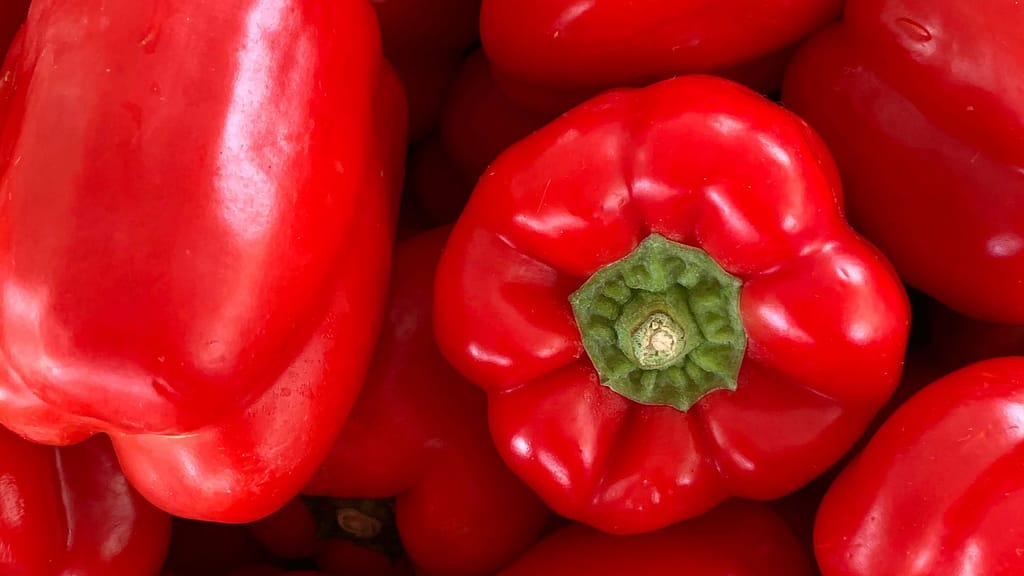
Pumpkin Seeds: A Tasty Snack Rich in Zinc for Eye Health
Rich in Zinc
Pumpkin seeds are truly a power house of nutrition, especially in relation to supporting eye health. They are full of zinc, a mineral so important to the health of the retina. Zinc plays a big role in the proper functioning of the eye by supporting the structure and function of the retinal cells.
Maintaining Retina Health
The benefits of pumpkin seeds in terms of eye health are huge. Zinc helps protect the retina against damage caused by oxidative stress. This mineral is important in ensuring that the retina is healthy and working optimally, which again helps in the maintenance of good vision.
Prevents Age-Related Macular Degeneration
Including pumpkin seeds in the diet will help to protect against age-related macular degeneration. Zinc was found to slow AMD’s advancement and diminish the chances of vision loss due to the condition. As such, by adding pumpkin seeds to your meal, you ensure long-term health for your eyes and eye-sight protection.
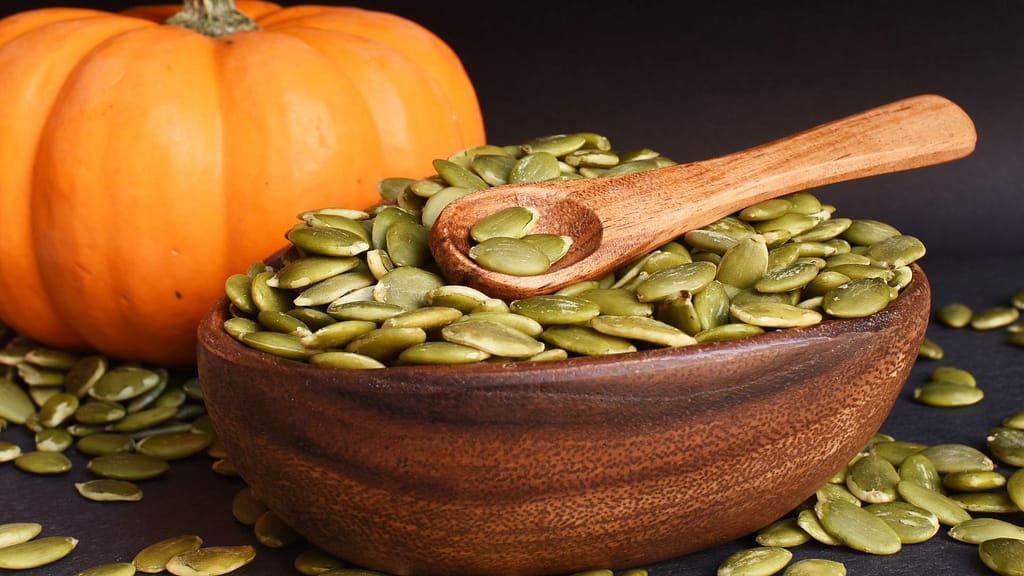
Healthy Alternatives and Incorporating These Foods
Carrots:
Healthy Alternatives: Sweet potatoes and butternut squash are great alternatives. They also provide beta-carotene, essential for eye health.
Incorporation Tips:
- Roasted Carrots: Toss carrots with a bit of olive oil, salt, and pepper, then roast them in the oven.
- Carrot Smoothie: Blend carrots with orange juice, ginger, and a touch of honey for a refreshing drink.
- Salad Toppers: Grate carrots and add them to salads for extra crunch and nutrients.
Spinach:
Healthy Alternatives: Kale and Swiss chard are also high in lutein and zeaxanthin.
Incorporation Tips:
- Spinach Smoothie: Blend fresh spinach with fruit like bananas and berries for a nutritious smoothie.
- Sauteed Spinach: Lightly sauté spinach with garlic and olive oil as a side dish.
- Spinach Wraps: Use spinach leaves as a wrap for your favorite fillings instead of tortillas.
Sweet Potatoes:
Healthy Alternatives: Regular potatoes and butternut squash provide similar nutritional benefits.
Incorporation Tips:
- Sweet Potato Fries: Slice and bake sweet potatoes with a sprinkle of paprika for a healthy snack.
- Mashed Sweet Potatoes: Replace regular mashed potatoes with mashed sweet potatoes for a nutritious side.
- Sweet Potato Toast: Slice and toast sweet potatoes for a low-carb bread alternative.
Blueberries:
Healthy Alternatives: Blackberries and strawberries also offer powerful antioxidants.
Incorporation Tips:
- Berry Smoothie: Blend blueberries with Greek yogurt and a splash of almond milk for a nutrient-packed smoothie.
- Berry Topping: Sprinkle fresh blueberries over oatmeal or cereal.
- Frozen Treats: Freeze blueberries for a cool, refreshing snack.
Salmon:
Healthy Alternatives: Mackerel and sardines are also high in omega-3 fatty acids.
Incorporation Tips:
- Grilled Salmon: Season salmon with herbs and grill it for a flavorful main dish.
- Salmon Salad: Add flaked salmon to a salad with mixed greens, avocado, and a light vinaigrette.
- Salmon Bowl: Serve salmon over quinoa with vegetables for a balanced meal.
Eggs:
Healthy Alternatives: Avocados and nuts provide healthy fats and nutrients beneficial for eye health.
Incorporation Tips:
- Egg Breakfast: Enjoy eggs scrambled with spinach and tomatoes.
- Egg Salad: Make a healthy egg salad with Greek yogurt instead of mayonnaise.
- Baked Eggs: Bake eggs in avocado halves for a nutritious breakfast option.
Almonds:
Healthy Alternatives: Walnuts and sunflower seeds also offer vitamin E and other antioxidants.
Incorporation Tips:
- Almond Snack: Enjoy a handful of raw or roasted almonds as a quick snack.
- Almond Butter: Use almond butter as a spread on whole-grain toast or as a dip for fruit.
- Almond Milk: Add unsweetened almond milk to smoothies or coffee for a dairy-free alternative.
Oranges:
Healthy Alternatives: Grapefruits and kiwis also provide vitamin C.
Incorporation Tips:
- Orange Segments: Enjoy fresh orange segments as a sweet and refreshing snack.
- Orange Juice: Drink a glass of fresh orange juice in the morning.
- Orange Salad: Add orange slices to a salad for a burst of flavor and vitamin C.
Corn:
Healthy Alternatives: Peas and green beans also contain beneficial antioxidants.
Incorporation Tips:
- Corn Salad: Mix cooked corn with black beans, bell peppers, and cilantro for a healthy salad.
- Corn on the Cob: Grill or boil corn on the cob for a tasty side dish.
- Corn Soup: Make a light and flavorful corn soup with fresh herbs and vegetables.
Kale:
Healthy Alternatives: Collard greens and turnip greens provide similar nutrients.
Incorporation Tips:
- Kale Chips: Bake kale leaves with a bit of olive oil and salt for a crunchy snack.
- Kale Smoothie: Blend kale with fruits and a splash of juice for a nutritious drink.
- Kale Salad: Toss kale with lemon juice, olive oil, and your favorite toppings for a hearty salad.
Red Bell Peppers:
Healthy Alternatives: Yellow and green bell peppers also offer high vitamin C content.
Incorporation Tips:
- Stuffed Peppers: Fill red bell peppers with quinoa, beans, and cheese, then bake.
- Pepper Strips: Slice and enjoy as a crunchy snack with hummus.
- Pepper Salad: Add diced peppers to salads for added color and nutrition.
Pumpkin Seeds:
Healthy Alternatives: Sunflower seeds and chia seeds provide similar nutrients.
Incorporation Tips:
- Pumpkin Seed Trail Mix: Combine pumpkin seeds with nuts and dried fruit for a healthy snack mix.
- Salad Topping: Sprinkle roasted pumpkin seeds over salads for a crunchy texture.
- Smoothie Boost: Add a spoonful of pumpkin seeds to your smoothies for added protein and zinc.

